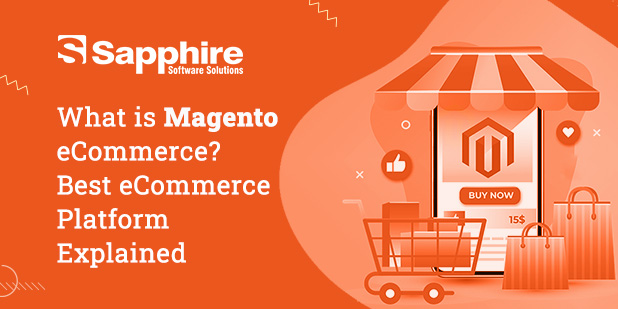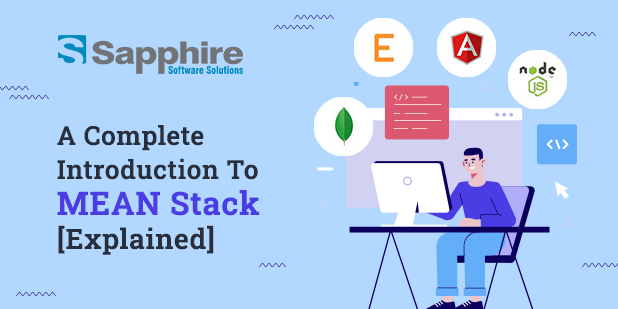Merchants are looking for robust online solutions to deliver a better customer experience and generate new audiences as consumers with more purchasing power continue to rise. Magento is one of the best eCommerce systems available since it has a complex range of choices that make it much simpler for your company to go the online path.
As one of the best eCommerce platforms, it provides an adaptable, scalable, and straightforward method to boost income via improved service. This blog explores why Magento is the best option for building eCommerce websites by identifying the distinctive qualities that set it apart from other solutions.
You will learn what is Magento eCommerce and how your company may profit from using it.
Open Source Platform
To differentiate yourself from the competition and meet the expanding market requirements, you will need to develop and upgrade your shop continually. Magento is an open-source platform that provides the best solution for meeting that need for several reasons.
It indicates that you may extend the functionality of your shop beyond what is provided by default with the Magento 2 extensions. You’ll be able to build a solid foundation using Magento, which will help you achieve your company goals and bring in more money.
This lessens the restrictions and elevates Magento to the position of having the most flexibility for eCommerce.
Affordability
Magento is the platform you should choose if you are starting online shopping. In contrast to its major rivals, Magento does not command an exorbitant price tag. Because it comes with a free, open-source software alternative, it is one of the most cost-effective eCommerce systems on the market. This is especially critical at the beginning stages of constructing an eCommerce website.
Performance
Because the speed of your website is one of the factors that determines how user-friendly your business is, Magento, an exceptionally user-friendly platform, has several features that contribute to that.
Several built-in and third-party options may be customized to speed up Magento 2 and produce a website that loads quickly. Everything from highly developed JS bundling to essential CSS, as well as newly developed image formats and caching, works together to provide your clients with an improved shopping experience.
Multi-website Setup
When compared to other eCommerce systems, this particular function is perhaps the one that sets Magento apart in the best possible way. It allows you to manage several websites, shops, and store views from a single dashboard.
You have the option of enabling the multi-website approach and managing the items, sales, and orders for each of the individual stores independently. Therefore, it is impossible for us not to mention how user-friendly the platform is for regular and admin users.
SEO-friendliness
Every eCommerce website development plan should allocate significant resources to search engine optimization. In this regard, Magento is not only one of the most SEO-friendly systems, but it is also the best.
Out of the box, it enables you to activate canonical tags and SEO-optimized URLs, produce HTML and XML sitemaps, configure robots.txt, and define robots.txt, among many other capabilities. You may improve your search engine optimization results by using several Magento SEO best practices, or you can use SEO extensions to raise your search engine optimization potential even further.
Magento’s development is done with eCommerce retailers’ best interests in mind to assist these businesses in ranking higher and receiving more targeted traffic.
Mobile Usability
Magento is now the best eCommerce platform available, and in addition to its excellent capabilities, it also possesses tremendous mobile potential. The HTML5 platform is used by both the open source and the commerce version of the system to scale photos, utilize videos, and offer an improved shopping experience for mobile customers.
Scalability
As discussed before, Magento offers a free, open-source version for small enterprises just beginning their journey into eCommerce. They have the ideal foundation for managing a manageable volume of orders and clients.
However, when your company expands, you can upgrade to a more complicated version of Magento Commerce, which enables you to manage more intricate and large-scale business procedures, including hundreds of orders and goods.
Magento guides you through the many phases of company growth and ensures you are equipped with the necessary knowledge for each level.
Payment Options
One of the reasons consumers don’t finish their purchases and abandon their carts is probably because the payment process is complicated; on the other hand, not with Magento. The answer to the issue of why Magento is the best platform for the building of eCommerce websites is found in the many payment methods that are provided by it.
It is compatible with various payment options, including credit cards, bank transfers, PayPal, Google Checkout, and Braintree, amongst many others.
The greater the variety of payment methods a consumer can access, the more likely they will go ahead and place their purchase. Magento has you covered there.
Third-Party Integration
Magento’s ability to quickly connect with any third-party solutions is enabled not only by the fact that the platform is open-source but also by the platform’s inherent flexibility. The platform’s architecture allows it to interface with almost any add-on that could improve how a shop is managed.
It may be anything like database applications, Google Analytics, payment gateways, order tracking, or delivery services. Anything that satisfies the requirements of your shop and makes your website more effective.
Security
Security is the last but certainly not the least significant reason why Magento is the best platform for eCommerce. When they place orders at your shop, many customers are careful about the information they provide. And no wonder. There is no way to protect oneself adequately against technological breaches, the loss of data, or hostile activities.
Magento offers a comprehensive suite of security features, including two-factor authentication (2FA), file system permissions, configurable admin panel URLs, and many more. The platform developers are always working toward making Magento a better and safer environment for constructing eCommerce shops.
Ready to Choose?
It is OK to take your time and consider each platform’s benefits and drawbacks before using one for your eCommerce website. As a Magento Development Company in India, we have Magento experts who can guide you in choosing the right Magento solution for your business.
The ease of use and adaptability to changing company needs continue to be the primary evaluation criterion. You should consider Magento development services if you need a flexible, all-in-one, highly adjustable system with more pre-installed capabilities than you could ever ask for.
FAQS
Who Should Use Magento?
Payment gateways, marketing automation, shipping providers, and tag management tools are third-party extensions, programs, and plug-ins that may be readily integrated with Magento to optimize your e-commerce business.
What Is the Difference Between Magento 1 and Magento 2?
The primary difference between Magento 1 and Magento 2 is that Magento 2 is speedier, SEO-friendly, and more user-friendly. It can accept more orders per hour and load pages faster than Magento 1. Magento 2 supports the most recent PHP version, increasing the site’s overall performance.
Should I Choose Magento 1 or Magento 2?
Magento 2 is more user-friendly, SEO-friendly, and quick than Magento 1. It can accept more orders per hour and load pages faster than Magento 1. Magento 2 supports the most recent PHP version, increasing the site’s overall performance.
Pros and Cons of Magento
- Pros of Magento
- – The platform offers free services
- – The platform is flexible for users
- – Community is helpful and will guide lost users through any troubles they may be experiencing.
- Cons of Magento
- – Potential hosting and security expenses
- – Paid customer support





































